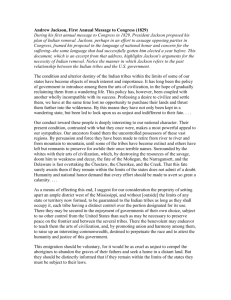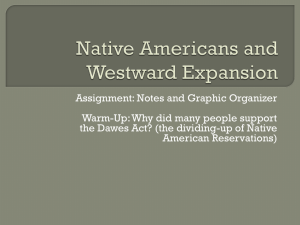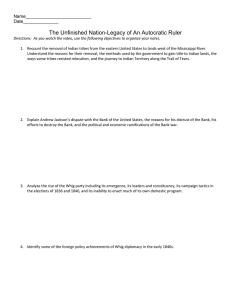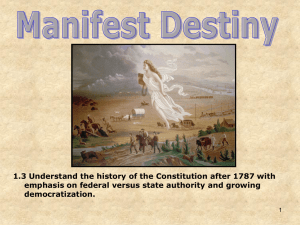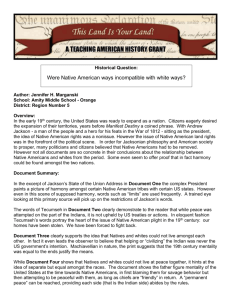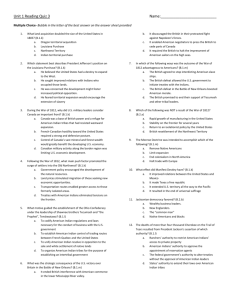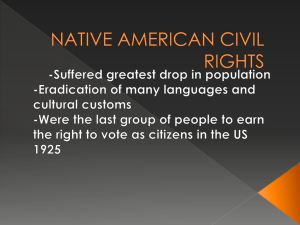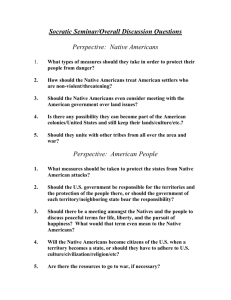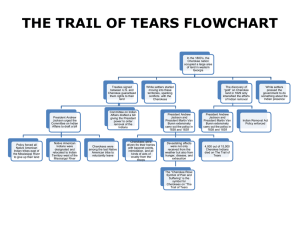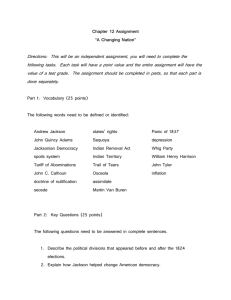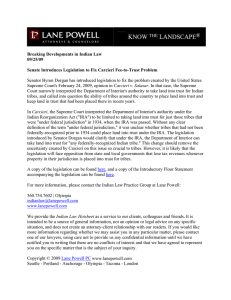Speech by Andrew Jackson, First Annual Message to Congress (1829)
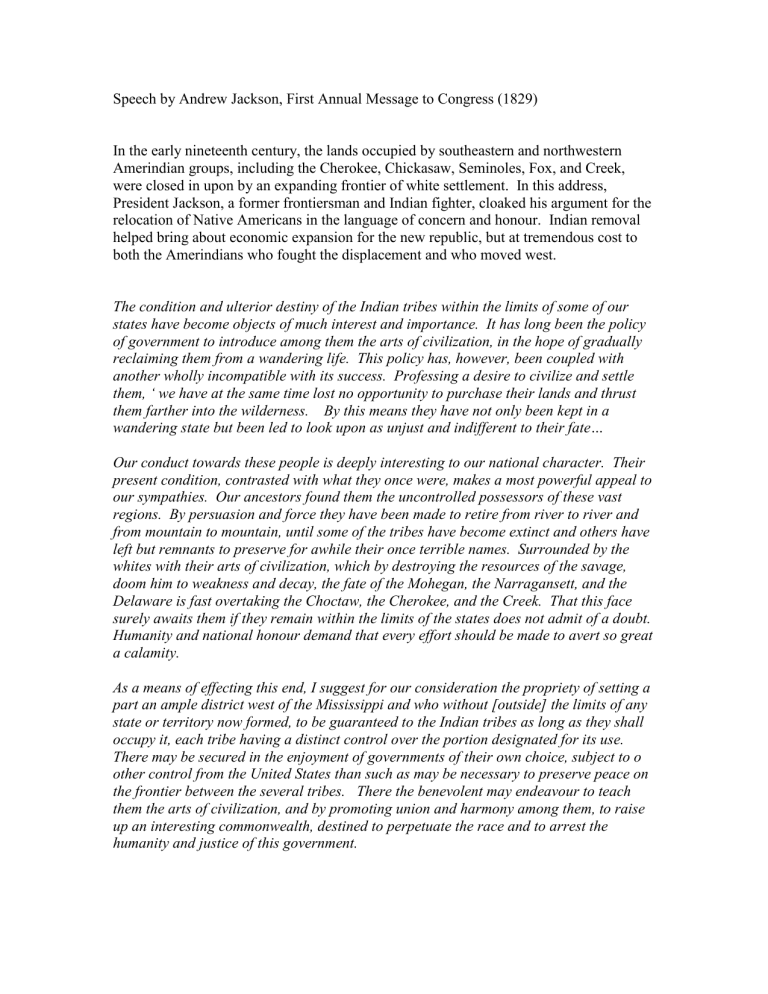
Speech by Andrew Jackson, First Annual Message to Congress (1829)
In the early nineteenth century, the lands occupied by southeastern and northwestern
Amerindian groups, including the Cherokee, Chickasaw, Seminoles, Fox, and Creek, were closed in upon by an expanding frontier of white settlement. In this address,
President Jackson, a former frontiersman and Indian fighter, cloaked his argument for the relocation of Native Americans in the language of concern and honour. Indian removal helped bring about economic expansion for the new republic, but at tremendous cost to both the Amerindians who fought the displacement and who moved west.
The condition and ulterior destiny of the Indian tribes within the limits of some of our states have become objects of much interest and importance. It has long been the policy of government to introduce among them the arts of civilization, in the hope of gradually reclaiming them from a wandering life. This policy has, however, been coupled with another wholly incompatible with its success. Professing a desire to civilize and settle them, ‘ we have at the same time lost no opportunity to purchase their lands and thrust them farther into the wilderness. By this means they have not only been kept in a wandering state but been led to look upon as unjust and indifferent to their fate…
Our conduct towards these people is deeply interesting to our national character. Their present condition, contrasted with what they once were, makes a most powerful appeal to our sympathies. Our ancestors found them the uncontrolled possessors of these vast regions. By persuasion and force they have been made to retire from river to river and from mountain to mountain, until some of the tribes have become extinct and others have left but remnants to preserve for awhile their once terrible names. Surrounded by the whites with their arts of civilization, which by destroying the resources of the savage, doom him to weakness and decay, the fate of the Mohegan, the Narragansett, and the
Delaware is fast overtaking the Choctaw, the Cherokee, and the Creek. That this face surely awaits them if they remain within the limits of the states does not admit of a doubt.
Humanity and national honour demand that every effort should be made to avert so great a calamity.
As a means of effecting this end, I suggest for our consideration the propriety of setting a part an ample district west of the Mississippi and who without [outside] the limits of any state or territory now formed, to be guaranteed to the Indian tribes as long as they shall occupy it, each tribe having a distinct control over the portion designated for its use.
There may be secured in the enjoyment of governments of their own choice, subject to o other control from the United States than such as may be necessary to preserve peace on the frontier between the several tribes. There the benevolent may endeavour to teach them the arts of civilization, and by promoting union and harmony among them, to raise up an interesting commonwealth, destined to perpetuate the race and to arrest the humanity and justice of this government.
This emigration should be voluntary, for it would be as cruel as unjust to compel the aborigines to abandon the graves of the9ir fathers and seek a home in a distant land. But they should be distinctly informed that if they remain within the limits of the states they must be subject to their laws.
1.
According to Andrew Jackson, whatw had been the impact of white settlement on the Amerindians?
2.
How had the government addressed the issue of Natives Americans and what did he propose to do?
